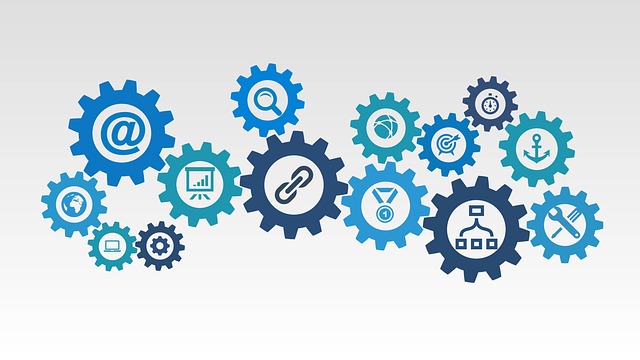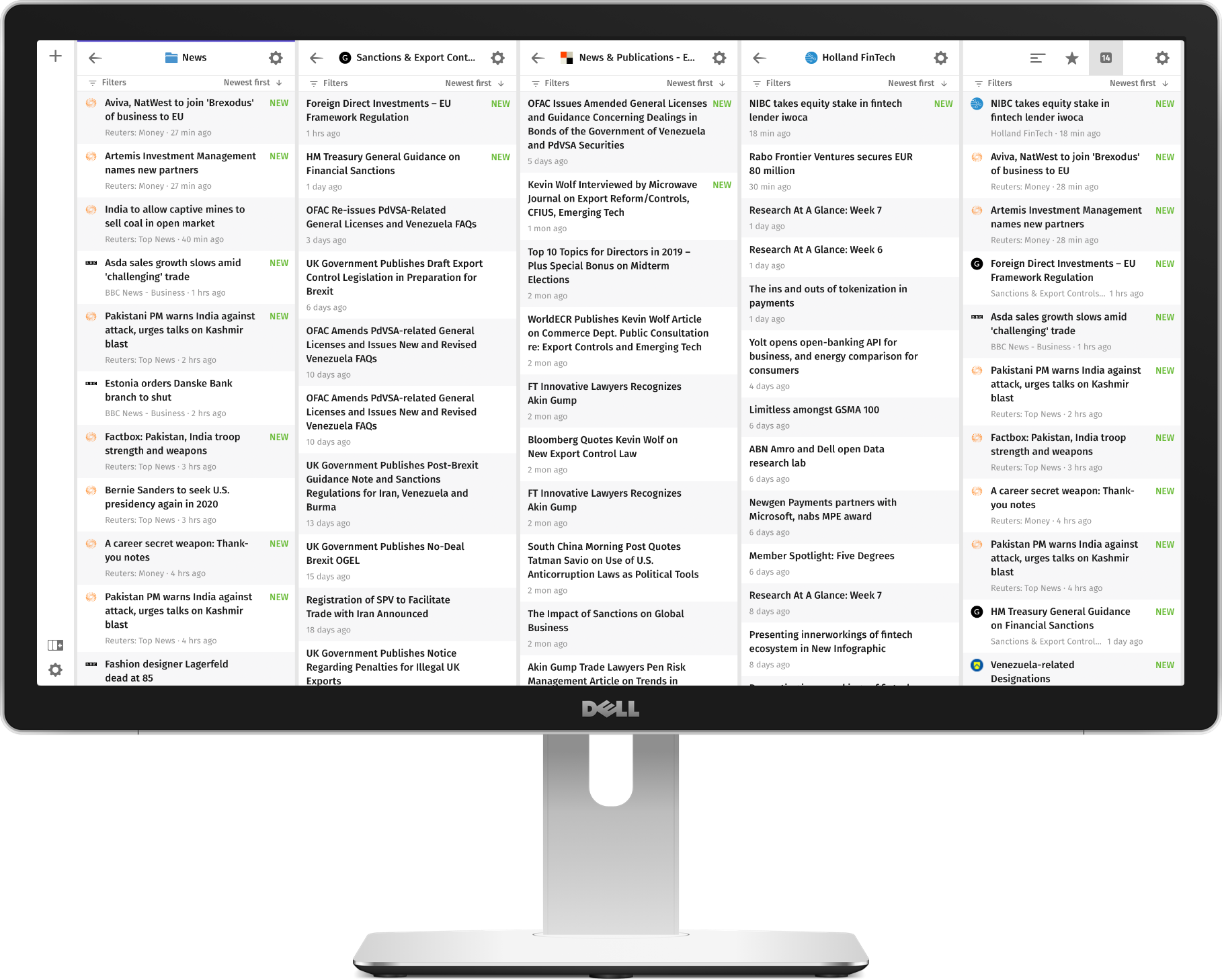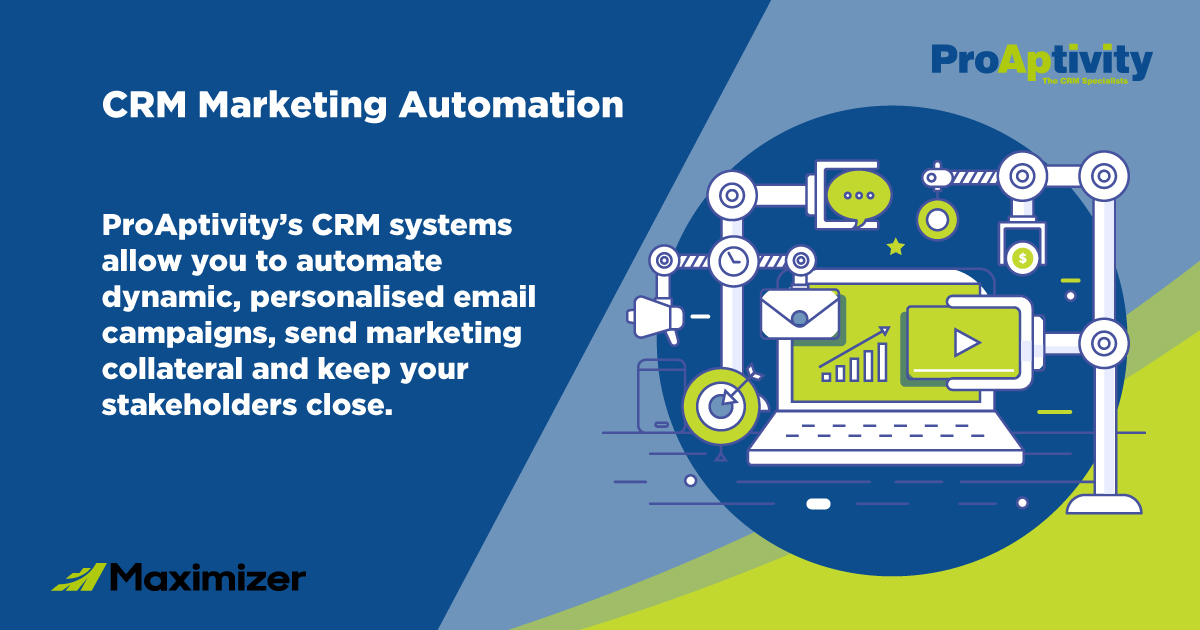
A campaign is a collection of marketing actions that aim to develop relationships with prospects and clients. CRM systems can automate campaigns, track activity and provide reports that enable businesses to optimize their marketing strategy. CRM campaigns are typically focused on different areas in the sales funnel. For example, top-ofthefunnel marketing campaigns raise awareness, while middle-ofthefunnel marketing campaigns nurture warm leads and bottom-ofthefunnel marketing campaigns close the deal.
Marketing campaigns are an excellent way to keep you brand in front of your audience. They work especially well if your list includes a lot of email addresses. Using a CRM system that includes email marketing tools can help you create and send automated emails to your customers and prospects. CRM systems provide reporting tools that allow you to analyze the results of your email campaigns, find ways to improve them, and better utilize your marketing budget.

An integrated CRM system and email marketing tool will save you time and effort. You can save time by automating the sending of emails, segmenting your contacts, and assigning tasks among your team. This will allow you to concentrate on other areas of your business such as generating sales leads. Integrating email marketing into CRM systems allows you to stay in touch and engage with current customers.
Many options are available when choosing a solution to manage your marketing campaigns. One option is to choose a solution that integrates with an email marketing tool, such as Mailchimp or Klenty. These solutions include a range of features you can use to automate campaigns, such as custom fields and workflows. They can be customized to create email templates. And they can trigger automatic responses based upon the responses your recipients gave to previous emails.
Another option is to choose a CRM solution that has an easy-to-use campaign management dashboard. With this method, you can create and maintain your campaign in a matter of seconds. The dashboard will provide you with all the information about your campaign. This includes open rates and goals as well as social media performance. These CRM dashboards are easy to use, thanks to their simple and intuitive interface.

You can keep all your contact information together with a CRM system and an email marketing tool. You can import your list of leads collected at events and through your website. Filter them by their stage in the funnel. This will allow you to remain in touch until your audience is ready to make a purchase. Knowing your audience better will make it easier to build relationships and find new ways of communicating with them.
FAQ
What is WordPress Marketing Automation?
WordPress marketing automation is a tool that automates, streamlines, and effectively manages all communications and online content related to marketing. It includes email campaigns, social media posts and advertising. It can automate tasks that are too difficult or time-consuming to perform manually.
Automation helps businesses save time and ensure consistent brand promotion across multiple channels. It also allows for customer engagement in real-time. Automating complex tasks like data analysis and segmentation makes it easier for marketers to focus on creating strategies that are based on precise insights, rather than manually going through large amounts of data.
WordPress marketing automation is a powerful tool that allows you to automate lead nurturing workflows. It also lets you set up triggers to send emails based only on certain visitor activities. You can personalize customer journeys with customized messages that will meet the needs and expectations of your customers. In order to track the effectiveness and performance of campaigns, you will also find detailed reports about website traffic and ROI.
Essentially, WordPress marketing automation allows businesses to automate mundane operations while improving their overall marketing performance by utilizing better resources available at their disposal--all while keeping costs low.
How do you automate WordPress blog posts
Automating a WordPress post means publishing content to your blog automatically based on a schedule or other events. You can automate this by creating an RSS feed, or using other automation services to provide automated content. It is also necessary to create triggers. These include when and who should be notified when the post publishes. Without having to monitor your content daily, you can create rules that optimize automatic posting.
Jetpack or Blogger Tag Editor allow you to automate WordPress blog postings by giving you more control over the automated posts. You can also schedule posts and customize publishing dates & times, author details, categories and tags for each article before they are published. Some plugins also allow you to integrate your blog with social media platforms. This means that when you publish a new post, it will be shared on all your channels.
Automating WordPress blogging needs careful setup and monitoring. Missing links or outdated information can cause poor indexing by Google and other search engine. This could result in lower ranking, as well as customer retention loss. Website visitors who depend on regular news updates and subscription emails about topics they are interested in can benefit from timely data delivery from outside sources.
Publishing WordPress blogs can be automated to save time, resources and still produce quality content to keep their readers engaged. While automated blogging solutions won't guarantee success, they can offer many benefits including cost savings and increased customer engagement.
WordPress marketing automation allows you to automate more aspects of your digital marketing. Automation tools can manage email campaigns and social media posts as well as other online activities. Automated emails can easily be sent to multiple recipients with personalized messages. Automated social media posts are easy to schedule in advance and can be posted at the best time for maximum engagement. Automated analytics helps marketers monitor campaign performance and make data driven decisions. Automation also helps businesses save time by automating mundane tasks, freeing up resources for more creative activities.
Market automation can also help personalize customer experiences. Automated tools allow businesses to understand customers' preferences and interests, which allows them to create content and offers that resonate more with their target audience. You can send personalized emails to customers based on their browsing history or past purchases. You can tailor automated social media posts to specific audiences. Automated analytics is a great way for businesses to monitor the performance of campaigns and take data-driven decisions.
Businesses looking to optimize their digital marketing efforts will find marketing automation invaluable. Automation tools can be used to manage email campaigns, social media posts, and other online activities with ease. Automation helps companies save time and allows them to focus on more creative tasks. Automation can also be used by businesses to personalize customer experiences. Businesses can tailor content and offers to better resonate with their target market.
Is WordPress capable of marketing automation?
WordPress marketing automation automates the creation and management of WordPress campaigns or content. It's intended to aid developers, marketers and non-technical users to simultaneously create, execute, and track complex tasks.
It works by creating workflows and creating triggers that are triggered every time someone does something, such opening an email or visiting pages. This automation system is also useful for updating pages, sending out emails, scheduling social media posts, and so on.
WordPress marketing automation allows for personalized messages to be sent based on user behaviour and interests. This allows you to optimize marketing efforts across multiple channels.
Similar to the above, detailed analytics reports can be used to track the success and failure of your campaigns. They show where the lead originated so that you can concentrate more effort on the best growth paths.
This allows marketers to focus on improving customer experience, rather than worrying about the mundane tasks of updating websites or managing email flow.
It also allows for higher conversions as customers don't have to wait for long time frames before getting a response from your team due to improved integration between sales & marketing teams working on similar projects in real-time.
WordPress marketing automation also empowers small businesses by allowing them to quickly identify leads. This significantly lowers acquisition costs and provides valuable insights into their campaigns' impact.
Last but not less, the automated platform minimizes human error and profit loss due to its pre-configured rules.
Marketing automation can be a skill.
Marketing automation does not mean that it is a tool. It is a skill. It requires planning, precision, industry trends and analytics knowledge, along with the ability and creativity to use your tactics outside the box.
Knowing when and where to place campaigns can be the difference between success, failure and success. Each recipient will respond to emails that are tailored to suit their preferences, needs, and behaviors.
Tracking performance metrics and analysing data points are important components of marketing automation. However, improperly applied can lead to mutually contradictory outcomes.
Market automation should be treated like a skill. It requires focus, effort, and time to get it working the way you want.
Can you automate with SQL?
SQL can automate any project of any size, large or small, big or small. It relieves you from manual steps, such as manually entering data or searching in tables.
SQL can be used to quickly traverse through thousands or hundreds records in a data base table by using one command. It is also possible to quickly convert data into graphical visualizations that are more understandable for everyone.
SQL allows customers to get crucial insights into their products, customers, and activities. You can run powerful queries over structured data sets using SQL. You can also increase your accuracy and reduce the time you spend on repetitive tasks with these insights.
It is easy to set up automated reports that automatically refresh so that everyone doesn't miss a detail. Saving valuable time that could otherwise be spent away from the office. So whether it's efficiently tracking processes across departments or simplifying how teams communicate critical findings, SQL does it all.
SQL is great for automating complex calculations or data manipulation tasks. SQL can be used to automate processes that generate reports, send notifications, and trigger other processes depending on specific conditions. This simplifies workflows while ensuring that everyone is always up-to-date.
SQL can also be used to automate marketing activities like email campaigns and website analytics. SQL can be used in order to automate targeted campaigns or monitor the performance of websites in real time.
Which marketing automation platform is best?
Trying to find marketing automation that works best for your organization can be difficult. There are many choices and it can be difficult to choose the best.
You need something that saves you time, money and hassle. Something you can trust. It should generate leads, increase customer retention, and increase sales with minimum effort.
It must be reliable, easy to use, and provide excellent customer support in the event of any problems. It must be able to perform activities such as email marketing, segmentation by customer interest or behavior, multichannel nurturing of leads and insightful reporting.
It is important to remember that the software can provide you with clear visibility of customer journeys, as well as give you actionable insight into what triggers customers to buy so that you can design an effective strategy that addresses their needs.
So when choosing a marketing automation system -- look for user-friendly features backed up by data-driven progress tracking at all stages of the customer lifecycle along with robust personalization capabilities -- then you know you've got a winner!
What are the key features of marketing automation software
Marketing automation software promises to simplify digital marketing and provide meaningful insights based upon your business goals. You can make tangible improvements in efficiency and drive results with the right marketing automation software. Here are four key features:
-
Automated Campaigns (Automated Tasks): Use automated tasks to make it easier to manage complex campaign campaigns more efficiently. These tasks trigger based upon user behavior and other events.
-
Analytics & Intelligences: Use advanced analytics for insight into customer behavior to optimize future campaigns.
-
Customer Segmentation. Use customer segmentation in order to ensure that every campaign is tailored and personal for the greatest success.
-
Messaging: Create customized messages for each customer segment and increase response rates.
Businesses can save time and money by leveraging the best marketing automation software while still creating personalized customer experiences. Automation tools allow you to segment customers into different groups based on their behavior and preferences, track customer activity and engagement, and send automated messages tailored to each customer segment. Marketing automation is an indispensable tool that can help businesses thrive in today’s competitive markets.
Statistics
- Companies that implement this kind of lead scoring enjoy 28% better sales productivity and 33% higher revenue growth than companies without lead scoring (MarTech Alliance). (marketo.com)
- Even if your database is currently filled with quality leads, how effective will your marketing automation be when you've either converted all those leads into customers or when your database begins decaying by ~22.5%/year? (hubspot.com)
- It can help reduce administrative overheads to savings of 3.4% on average, with most companies saving between 1.5% and 5.2% (Lido). (marketo.com)
- The stats speak for themselves: Marketing automation technology is expected to show a 14% compounded annual growth rate (CAGR) over the next five years. (marketo.com)
- The highest growth for “through-channel marketing automation” platforms will reach 25% annually, with “lead-to-revenue automation” platforms at 19.4%. (marketo.com)
External Links
How To
How do I use automation in my content marketing?
Automated personalization uses data-driven insights to create personalized content that is tailored for specific personas, interests and behaviors. This allows you build personalized marketing experiences based upon how each person interacts. Segmentation, targeting and optimization strategies can all be used to increase relevancy.
It is easier for people to connect with your brand if you tailor your content to their needs and preferences. Automating processes allows you to spend more time on the bigger picture tasks, like creating quality content or strategizing for better reaching your target audiences.
Segmentation is key to personalization. You can break down your audience into smaller groups so you can target them with more precision. This can be automated using past behavior patterns to create segments that are based on language and interests. From here, you can create messages tailored for each group. This is a better approach than simply sending one message to all users.
Targeting is a part of segmentation. Once the audience has been separated, it's time for messaging to be perfect by landing appealing offers and ads at the right times. Targeting pages or channels in an email campaign could be done by placing banners at micro-targeted locations. Data intelligence can help you go beyond traditional methods like direct mail or cold calling to find potential leads.
Optimization allows marketers make minor adjustments to campaigns over time to produce better results. Further personalizing messages to customers is possible based upon their actions. By analyzing data from past campaigns combined with real-time adjustments, businesses now have access to powerful tools that guarantee customers are receiving customized messages when they're most likely to take advantage of them.
Automated personalization makes content marketing easier by allowing brands to quickly segment their audiences and make adjustments based on data analytics.